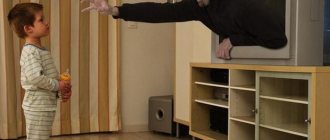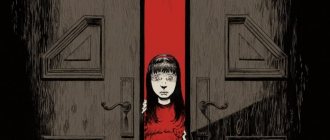Description
In countries where medicine is highly developed, calm and comfortable conditions are created for the patient. In such clinics, doctors treat patients not as part of their work, as a specific object for manipulation, but, above all, as a person.
Unfortunately, medicine is not well developed everywhere. When you end up in a hospital, you experience a lot of unpleasant sensations, some experience mental trauma. In addition to all the pain, the procedures have to endure the cruelty, rudeness, and negligent attitude of some doctors. After this, you are unlikely to want to get into such an atmosphere again. Subconsciously, a fear of the hospital, doctors and everything related to medicine begins to develop.
Causes of iatrophobia
- Medical error or a situation where, due to the doctor’s incompetence, a person’s health condition sharply worsened or there was a serious threat to life. As a result of observing the unprofessional or negligent work of colleagues, jatrophobia can develop in medical workers themselves.
- Experience of long, difficult and painful treatment.
- The media and excess information about the incompetence and dishonesty of doctors, about extortion and false diagnoses.
- Ignorance of how much discomfort you will have to endure during a particular procedure.
- Low pain threshold and memories of some very painful procedure.
- Inappropriate behavior of a doctor: rudeness, negligence, coldness, authoritarianism.
- Fear of finding out about a serious illness. In some cases, a person is already convinced that he is terminally ill, and is afraid to hear confirmation of this.
- The need to trust an outsider and the inability to fully control what is happening.
- Embarrassment, reluctance to show your body and tolerate being touched.
- The need to admit to having bad habits or talk about those details of your personal life that you want to hide.
- A form of behavior adopted from parents. If a child constantly notices the obvious anxiety of adults before seeing a doctor, then the doctor begins to be perceived as some kind of danger.
- Unfavorable environment in a medical facility: crowds of patients, conflicts in line, screams and moans of patients, poor sanitary conditions.
- Poor awareness, the doctor’s reluctance to explain in detail the need for procedures and the treatment process as a whole. This is especially true for young children who do not understand why they are hurt. The child does not know the essence of even the simplest manipulations of the doctor and the purpose of the instruments. A complete lack of understanding of what is happening gives rise to strong fear.
- Negative memories and associations from childhood (injections, unpleasant-tasting medicine, doctor’s rudeness towards a parent).
Causes
Negative childhood memories
Iatrophobia often develops in those who had to endure a lot in hospitals as children. Little children are frightened by all the incomprehensible procedures that are associated with their body. Parents at this moment cannot help the child; he is under extreme emotional stress. They will be remembered for the rest of their lives: “Don’t be afraid, now only a mosquito will bite and that’s all,” “Be patient a little, it will be a little unpleasant.” This is where yatrophobia begins to form.
Lack of control
A person is afraid to trust a doctor because he does not know how he will be helped. When health deteriorates, a person loses control over himself, cannot change anything, agrees to all procedures and completely surrenders to the hands of doctors.
White robe
If you have previously experienced mental trauma associated with a hospital or doctors, a person will be afraid of a white coat for the rest of his life. It would seem that this is just a uniform, but it causes horror to a jatrophobe.
Medical error
If a person had to go through an unsuccessful operation, he was faced with an erroneous diagnosis, useless treatment, and for this reason suffered greatly, he will never trust doctors again. The death of a loved one has a particularly negative impact on the human psyche. Some suspicious people begin to fear doctors after watching films in which the actions of doctors led to tragedy.
Alcohol and drug addiction
As a rule, those who are addicted to alcoholic beverages and various drugs most often avoid doctors. They don’t want to get rid of their habits, it’s good for them to live this way, so they are afraid that the doctor will ruin everything.
Subconscious fears
Some are very afraid that the doctor will find some kind of disease in them and doom them to death. There is a category of people who categorically refuse to go to the doctors because they are sure they have a fatal disease. Such people, in addition to jatrophobia, have Munchausen syndrome, in which they constantly invent serious pathologies for themselves.
Intense fear of death
A person does not trust a doctor when he agrees to an operation; he is very afraid that he will make a mistake and he will not come out of anesthesia and will die on the operating table. It is very difficult to cope with such fear; willpower is required.
Important! The very inanimate hospital environment with the smells of medicines, the groans of patients, the stories of suffering people, can cause jatrophobia even in a mentally balanced person.
Causes of fear
In most cases, the fear of hospitals is a fear that comes from childhood. It can be caused by various reasons, but most often the problem lies in the educational process. Parents often scare disobedient children with doctors, injections and hospitals. Phrases that cause a child to develop subconscious irrational fear:
- “If you behave badly, the doctor will give you an injection”;
- “disobedient children are treated in hospital”;
- “If you catch a cold, they’ll put you in the hospital,” etc.
This is an extremely negative approach to education, which leaves an imprint on the rest of a person’s life. Also, some parents may shout and scold their children for bad behavior when visiting a medical facility. Instead of comforting a child who is afraid to go to the doctor, parents break down and scream, causing negative emotions.
Some children get sick very often. Parents may not be able to restrain their own feelings, and in their hearts they scold the baby for another cold, as if it were his fault. As a result, the child develops a fear of getting sick and a fear of hospitals, as the mother or father demonstrates his dissatisfaction when the baby needs medical help.
In older children, the phobia may be associated with traumatic situations. For example, a child may be injured at school. He will be sent to the medical center, and his parents will not be around. Experienced stress can cause the development of a phobia.
Adults are also not immune to irrational fears. Fear of hospitals can be a consequence of severe stress experienced in a medical facility. A false diagnosis, painful procedures or rudeness on the part of medical personnel - all this can leave an indelible mark on the psyche of especially impressionable people.
Another cause of fear can be watching horror films or tragic news stories that feature hospitals and medical institutions. Also, a phobia can overlap with other fears and, for example, stem from a panicky fear of getting sick.
Regardless of the reason for the development of fear, the phobia must be detected and treated in a timely manner, otherwise it will only progress over the years.
Symptoms
When a patient encounters doctors or is admitted to a hospital, he develops the following symptoms:
- Intestinal, stomach spasm with nausea.
- Trembling knees.
- Muscle tension.
- Blood pressure rises.
- Hypochondria is observed.
As a rule, a person with a phobia postpones going to the hospital for a long time and tries to self-medicate. When children get to the hospital, they throw a tantrum, scream, and try to run away.
Signs and symptoms
Recognizing a jatrophobe is, in principle, not difficult. Usually these are people who, for any disease, are in search of folk recipes. Self-medication is the only thing they admit in case of various health problems. I don’t think it’s worth reminding that such a practice is fraught with a serious deterioration in the condition. As a rule, medical care at some point becomes necessary for such people.
There are different stages of this phobia. With a mild form, a person is quite capable of controlling fear and making rational decisions regarding his health. Only he knows how much effort each visit to a hospital or clinic costs him; others may not even know what is happening in his head. An advanced stage can cause a condition in which the patient will be afraid even of watching a regular TV series in which doctors are present. One type of them can cause trembling in the body, rapid heartbeat, nausea, dizziness and even fainting.
If you are afraid of medical personnel, the condition may manifest itself as:
- dry mouth;
- increased sweating, tremors;
- shortness of breath;
- uncontrollable anxiety;
- inability to express thoughts, etc.
In addition, there is such a thing as “white coat” hypertension. Its essence is that a person’s blood pressure increases when it is measured by a healthcare worker. In another situation it is always normal. This may be the only symptom, and is usually observed in people with an unbalanced psyche.
A phobia can manifest itself differently in each individual case. It all depends on its stage, course and, in fact, type.
Ways to overcome jatrophobia
In order not to be afraid of doctors, you must first calm down and realize that this is a person just like you. Psychologists recommend adhering to the following recommendations:
- Try to trust the doctor. If there have been unpleasant situations in the past, find a professional who you will always turn to. You must have your own therapist, dentist, gynecologist and other specialists that are necessary. Are you afraid of clinics? Don't trust doctors? Then seek help from private clinics with a more pleasant atmosphere and good specialists.
- Control yourself. You need to get help to improve your health condition. Don't dwell on your fears.
- Read medical books, websites , this will make it easier for you to overcome your phobia. There are many positive, optimistic reviews about the treatment on the Internet. Perhaps they will help you.
- Do everything to make you feel comfortable in the hospital . Take your tablet, book, and your favorite blanket with you. Try to think only about good things. Dream that you will leave the hospital and definitely go on vacation, sleep at home, and be healthy again.
Can't pull yourself together? Are you so driven by fears that you endure pain and discomfort for a long time? First, go to a psychologist, he will help you overcome your problem.
Remember, any fear is a deprivation of freedom and personal space. Because of a phobia, you cannot make decisions, cope with problems, or improve your health. It's time to overcome yourself, get rid of what has been sitting in your thoughts for a long time. Find out the reason why you are so afraid of medicine. Try to look your “fear in the eyes”; you will immediately notice how strong and independent you have become. Fight with yourself, take action. You will definitely be able to overcome yourself and live fully again!
Manifestation of jatrophobia
With this disorder, a person may become overwhelmed by anxiety even at the stage of planning a trip to the doctor. As the appointed date approaches, emotional tension increases.
In severe cases of iatrophobia, people tend to completely eliminate the contract with doctors and avoid medical institutions. A fearful person should only see a doctor when the pain or other discomfort cannot be tolerated. Meeting with medical workers, mentioning them, watching a film or program about people in white coats can provoke an attack of panic.
A person suffering from a phobia sees only a threat in a doctor. It is impossible to convince a jatrophobe that doctors are trying to help and not harm. People who feel fear pay a lot of attention to disease prevention, often resort to self-medication, get information from the Internet, and also experiment with medications or traditional methods of treatment.
With a mild form of fear of the doctor, a person can force himself to seek medical help, but at the same time experiences severe psychological discomfort. Sometimes the patient hastily leaves the medical facility.
Emotional stress causes physiological symptoms of phobia, which are similar to the symptoms of other diseases. Because of this, jatrophobes may be misdiagnosed. A striking example of a person’s internal reaction to the presence of a doctor is “white coat” hypertension. The phenomenon is characterized by the fact that a jump in the patient’s blood pressure is observed only in the presence of a doctor. Daily monitoring shows that at other times the patient’s blood pressure is normal.
Physiological symptoms of phobia include:
- dyspnea,
- nausea,
- increased sweating,
- tremor of the limbs,
- dry mouth.
During a phobic attack, a person also loses the ability to think clearly and formulate thoughts clearly. A child suffering from iatrophobia may react to the presence of a physician by screaming, crying loudly, hysterically, or trying to escape.
The connection between iatrophobia and other phobias In some cases, another phobia is hidden under the fear of doctors, and the medical worker evokes associations with the main object of fear. Thus, fear of a doctor may be associated with the following disorders:
- Algophobia is the fear of pain.
- Hemophobia is the fear of blood.
- Thanatophobia – fear of death (fear of dying during surgery or from anaphylactic shock).
- Trypanophobia – fear of injections and syringes.
- Pharmacophobia is the fear of drug treatment.
- Aichmophobia is the fear of sharp objects.
- Nosophobia is the fear of contracting any disease.
- Nosocomephobia – fear of hospitals.
Common social phobias
It is gynecologists and dentists, according to numerous social surveys, that inspire the greatest fear, which often develops into a real phobia.
Dentophobia
Fear of dentists is called dentophobia, odontophobia or stomatophobia and is an overwhelming, panicky, intense fear of treatment from a given specialist. Carriers of this disease prefer self-medication, are ready to endure unbearable pain, take painkillers and only in extreme cases seek help from a dentist
Sociological studies indicate that, to varying degrees, more than 30% of the world's population have a phobia of doctors of this category.
In the older generation, this fear is most acute, since older people lived through times when medicine was not at the proper level; therefore, dental treatment was accompanied by severe pain and incompetent attitude on the part of doctors. A phobia of dentists becomes very firmly established in the subconscious and successfully turns into an anxiety-phobic disorder. The symptoms in this case are expressed by panic anxiety at the slightest thought of visiting the dentist and this condition cannot be explained logically.
Fear of gynecologists
Many young girls experience a subconscious, unreasonable fear of being examined by a gynecologist.
In especially severe cases, trips to the antenatal clinic are excluded for many years, since there is no questionable discharge, no pain, no discomfort. This is why routine examinations are neglected, but this attitude is extremely dangerous, since in most cases women’s diseases are asymptomatic, and when the disease is no longer at an early stage, treatment becomes significantly more complicated. Advanced pathological processes can lead to infertility.
A woman suffering from a phobia of gynecologists goes for a consultation with a specialist only when living a full life becomes completely uncomfortable.
In this case, the following tips will help you fight fear:
- A woman should not withdraw into herself; she should consult with close friends and ask about effective methods of dealing with anxiety.
- If you experience discomfort precisely because of the fear of undressing and discussing intimate details, realize that the examination lasts no more than 5 minutes and for the gynecologist you are just another patient in need of his help. These specialists have been studying in medical institutions for years, undergoing practical training to gain invaluable experience and help a huge number of patients whose cases are more severe than yours.
- Change your doctor if you find it unpleasant to communicate with a particular person and this makes you fear the gynecologist.
Fear of doctors is a dangerous phobia that significantly worsens a person’s quality of life and health, since people subject to such fears prefer self-medication, do not use the services of medical specialists and do not visit hospitals.
Prevention of jatrophobia in children
What kind of attitude a person will have towards medical workers in the future largely depends on the behavior of his parents. What will help reduce the risk of developing panic fear?
- It is good if the child is notified in advance of the need to visit a doctor. Full knowledge of why this is required will help relieve anxiety.
- It is worth giving the child the opportunity to talk about concerns and express all fears. It is necessary to answer all children's questions in detail, but avoid lying. If an unpleasant procedure is ahead, the child has the right to know it. Deception will create distrust in mother, father and doctor.
- The baby will feel calmer if he sees the confidence and firmness of the parent talking with the doctor.
- Intimidation by a doctor or injections as punishment should be excluded from the educational process.
- It will be easier for a child to relate to doctors if he gets acquainted with his activities in a playful way, examines toy medical instruments and learns about their purpose.
Treatment of iatrophobia
Since iatrophobia can be associated with other anxiety disorders, the specialist must initially determine which phobia is the main one. The following psychotherapeutic methods are used in the treatment of jatrophobia:
- cognitive behavioral therapy,
- auto training,
- neurolinguistic programming,
- hypnosis.
For drug treatment, preference is given to mild herbal-based sedatives.
If the patient perceives the psychotherapist solely as a doctor and experiences fear that interferes with treatment, antidepressants may be prescribed.
Sometimes, after the somatic manifestations of a phobia have been removed, it turns out that the person’s physical health is better than previously thought, and there is no need for purely medical treatment.
The following steps can be taken as self-help:
- Select the most desired doctors and clinic.
- Ask the doctor any questions you may have.











